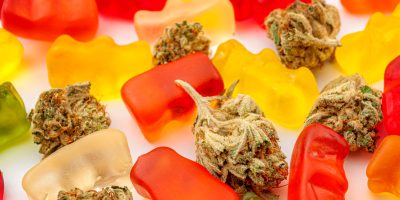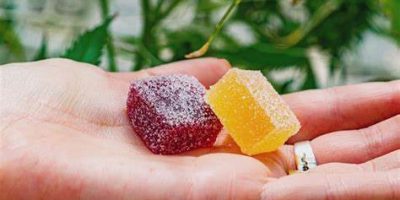As the popularity of CBD products continues to rise, it can be difficult to identify the right product for your needs and preferences. With numerous brands available at different price points – and with so many factors that contribute to quality – shoppers increasingly need expert guidance navigating this rapidly-evolving industry. Thankfully, Delta-9 has you covered! Here are five helpful tips to finding affordable, reliable CBD products that promote overall wellbeing while providing outstanding value. From exploring organic product certifications to comparing cannabinoid concentrations, learn more about identifying top quality cannabidiol products without breaking your budget!
Introduction to Delta-9 and Finding Affordable, Reliable CBD Products
Delta-9 is a form of cannabidiol (CBD) that has become increasingly popular in recent years. With its purported health benefits, such as helping to reduce anxiety and inflammation, Delta-9 is seen as an attractive option among consumers looking for alternative therapies. As a result, CBD products containing Delta-9 have been popping up in stores and online retailers everywhere—but how do you know which one to buy?
The key to finding affordable, reliable Delta-9 CBD products lies in doing your research beforehand. Reading reviews and researching different brands can help you get an idea of the quality of each product before committing to a purchase. Additionally, look for certifications or seals from third-party organizations on the packaging of the product. These seals will typically indicate that the product has gone through rigorous testing and meets certain safety standards. It’s also important to check the ingredients list to make sure that you’re not buying a product with any unwanted additives or preservatives.
When you’re ready to buy Delta-9, compare prices among different retailers—both online and offline—to make sure you’re getting the best deal possible. Different retailers may offer discounts based on quantity or frequency of purchase, so be sure to take advantage of these if they are available. Additionally, consider signing up for a loyalty program at your preferred retailer if one exists; this could save you money over time while still allowing you access to quality Delta-9 CBD products.

What Factors Should be Considered When Shopping for CBD Products?
When it comes to shopping for CBD products, there are a few key factors that should be considered. First, it is important to make sure that the product you are purchasing is of high quality and from a reputable source. Although CBD is widely available online, not all manufacturers adhere to the same standards of quality control when producing their products. It is therefore essential to do your research and ensure that you are buying from a reliable source with a proven track record of producing safe and effective CBD products.
In addition, it is also important to consider the concentration of CBD in the product you are purchasing. Different concentrations can have different effects on your body, so it is important to know what type of effect you are looking for and then choose accordingly. The higher the concentration, the more potent the effects will be so if you’re looking for something more mild it would be best to opt for lower concentrations.
Finally, it is also important to think about the method of delivery when shopping for CBD products. There are many different forms available including tinctures, edibles, creams and lotions, capsules and softgels etc., so make sure you consider which method works best for you depending on why you’re taking CBD in the first place. For instance, if you’re seeking longer lasting effects then taking CBD in a capsule or softgel will offer more sustained relief compared to vaping or tinctures which work quicker but do not last as long.
Exploring Organic Product Certifications
Organic product certifications provide consumers with peace of mind that the products they are buying are grown, processed, and handled according to certain standards that promote sustainability and health. Organic certifications can be a bit confusing due to the numerous organizations offering different standards. Generally speaking, organic certification requires that products be grown without the use of synthetic fertilizers or pesticides, and products made from animal sources must come from livestock raised in accordance with the National Organic Program standards. When it comes to food labels, look for seals from organizations such as USDA Organic, Canada Organic Certified, European Organic Certification, Japanese Agricultural Standard (JAS), and Indian National Program for Organic Production (NPOP). These organizations have established their own set of criteria for what qualifies as organic, so make sure you check their guidelines before making your purchase. Aside from food labels, there are other ways to tell if a product is truly organic. For instance, many products will bear a “Made with Organic Ingredients” label which means they contain at least 70% certified organic content by weight – not including water or salt. Shopping locally also provides more control over where your food comes from as you can ask questions directly to the seller about how it was produced and handled. Ultimately, organic product certifications help give consumers assurance that the product they’re buying is better for their health and the environment than non-certified options.
Comparing Cannabinoid Concentrations
Cannabinoid concentrations refer to the amount of active cannabinoids that are present in a given cannabis product. Cannabinoids are the chemical compounds that give cannabis its unique properties and effects. Concentrations of cannabinoids vary greatly between different products and strains, and can have an important impact on the type and intensity of a user’s experience.

The two most commonly discussed cannabinoids are THC (tetrahydrocannabinol) and CBD (cannabidiol). THC is the primary psychoactive component in cannabis and is responsible for providing users with the “high” feeling that is associated with marijuana use. CBD, on the other hand, does not produce any intoxicating effects, but may instead provide relief from pain, inflammation, anxiety, depression, nausea, seizures and other medical conditions.
When it comes to cannabinoid concentrations, there are three key factors to consider: potency (the total amount of cannabinoids present), ratio (the relative proportion of THC to CBD) and terpene content (the aromatic compounds found in cannabis). The ratio between THC and CBD will determine how intense a user’s experience will be; a higher ratio of THC will generally result in a more powerful high, while higher levels of CBD may provide more therapeutic benefits without producing any intoxication. Additionally, terpenes can enhance or alter the effects produced by cannabinoids when they interact together; certain combinations may produce an entourage effect that amplifies their individual properties.
Finally, it’s important to remember that cannabinoid concentrations can vary significantly between different products and strains; some products may contain high levels of both THC and CBD while others may only contain trace amounts of either compound. Therefore it’s important for users to research different strains before consuming them in order to ensure they know what they are getting into before they partake.


